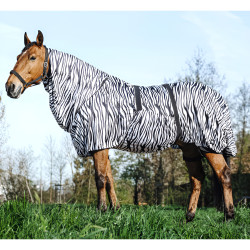Buying a horse is a significant investment, both financially and emotionally, so as well as finding the right horse it is important to be aware of the legal requirements and rights in relation to any horse purchase.
Passport
It is illegal for anyone to sell an equine without a passport. It is also illegal for anyone to own an equine without a passport. A passport is an equine identification document that identifies the equine by its microchip and silhouette (markings). It is recommended that the passport is inspected when viewing a horse for sale or at the very least before completing the purchase to ensure the details given in the passport matches the horse offered for sale. If no passport is available at the time of viewing, a passport must be obtained by the seller before the sale goes through and the seller must hand over the passport the buyer at the time of sale.
Any new owner has 30 days to register the change of ownership in the passport. If the new owner wishes to sell the equine on within this 30 day period, they must first register the change of ownerhship before offering the horse for sale.
Microchip
It was previously required that horses born after 30th June 2009 must be microchipped. However, a new law introduced on 25th June 2018 makes it compulsory that from October 2020 all equines are microchipped and registered in the Central Equine Database.
A horse's microchip number should be included within its passport.
Receipt
As an equine passport is not proof of ownership but an equine identification document it is recommended that a receipt is obtained from the seller when buying a horse. This receipt should include at the very least the horse's passport and microchip identification number, the amount paid for the horse, as well as the seller's and buyer's name and address. However, it is recommended to keep a copy of any advert for the horse or obtain a horse purchase agreement as this may aid in any dispute later should the horse not be as described.
Private Sellers
When buying a horse from a private seller caveat emptor (let the buyer beware) applies so any information gained from the seller should be verified if possible and included in writing in any purchase contract together with the description of the horse from the sale advert.
Should the horse then turn out not to be as described the buyer may be able to claim for misrepresentation under the Misrepresentation Act 1967 should a significant and specific statement of fact that the buyer relied upon when agreeing to purchase the horse is then found to be untrue or misleading.
However, the buyer must prove that the seller knew, or ought to have known, that any information given was misleading or untrue in order to obtain a refund and suing a private seller through the courts can be difficult, costly and lengthy.
Business Sellers
When buying a horse from a business seller such as a dealer the seller is acting in the course of their business and so the Sale Of Goods Act 1979 applies which states that the horse must be of satisfactory quality and fit for the purpose for which it was sold, taking into account its age and fitness at the time of the purchase. Purchases from dealers are also covered by the Trade Descriptions Act 1968 and the business has a responsibility to describe the horse acurately. Therefore buying a horse from a dealer offers better protection than buying from a private seller. However, it is recommended that a written horse purchase agreement is obtained from the dealer and a copy of any advert kept as this will provide written evidence in the case of any dispute.
Should the horse be found not to be fit for purpose or not of satisfactory quality, with the exception of any defects made known to the buyer at the time of sale, within a reasonable period of time after the purchase then the buyer should immediately inform the seller. The seller is then obliged to arrange for the collection of the horse at their expense and issue the buyer with a full refund or if the buyer opts to keep the horse refund the difference in value between the horse described and the horse purchased.
Once the seller has agreed to take the horse back it may also be possible to claim for any reasonable expenses incurred in looking after the horse until collection.
However, if a dealer is unwilling to take the horse back and issue a refund, professional legal advice should be sought as it may take a solictor's letter or be necessary to take court action in order to resolve.



















